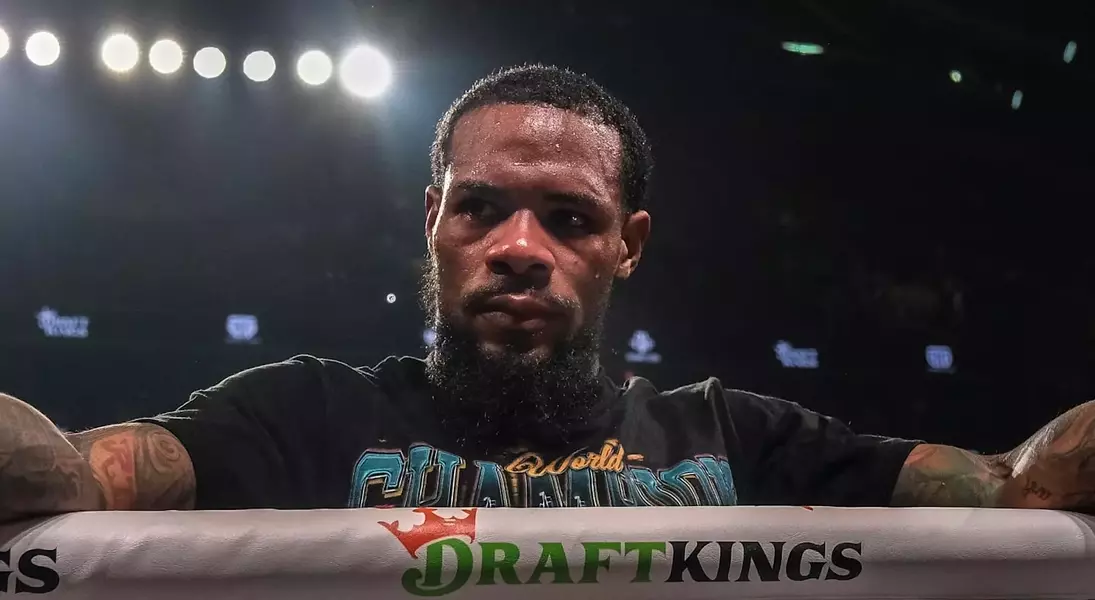Amid the glitz and glamour of professional boxing, one name continues to stir controversy—Gervonta "Tank" Davis. Critics argue that his reluctance to engage in benchmark fights undermines his legitimacy as a top contender, while others point out the complexities behind fighter matchmaking. This article delves into the dynamics surrounding Davis’ career trajectory and examines whether he truly avoids meaningful challenges or if external factors play a role.
H2 Unveiling the Truth Behind Tank Davis' Fight Selection Amid Rising Scrutiny
Understanding the Concept of Benchmark Fights
In the world of combat sports, benchmark fights serve as litmus tests for boxers aiming to ascend the ranks. These encounters typically pit an emerging star against a seasoned veteran capable of showcasing their true mettle. For instance, consider how Floyd Mayweather Jr.'s early-career bout with Zab Judah established him as a formidable force. Such matchups provide clarity about a fighter's potential and resilience under pressure.Critics often cite the absence of such pivotal contests in Davis' résumé. While some attribute this void to strategic planning by his team, others suggest it reflects a lack of willingness to embrace genuine competition. Yet, understanding the intricacies of fight negotiations reveals that financial incentives and promotional alliances significantly influence these decisions.The landscape of modern boxing is dominated by lucrative offers from promoters like Turki Alalshikh, whose massive purses have facilitated marquee showdowns between elite athletes. Despite this trend, Davis remains conspicuously absent from Alalshikh's roster, fueling speculation about his commitment to facing tougher opponents.Analyzing Paulie Malignaggi's Critique
Paulie Malignaggi, a respected voice in the boxing community, recently voiced his discontent regarding Davis' perceived aversion to challenging bouts. During an interview with FightHype, Malignaggi questioned why Davis consistently sidesteps opportunities to prove his worth through high-stakes encounters. His remarks underscored the double standard applied to certain fighters when evaluating their readiness for benchmark matches.Malignaggi specifically referenced Lamont Roach, whom Davis faced in a recent contest that ended in a draw. Far from being dismissed as insignificant, Roach demonstrated remarkable tenacity despite being heavily favored against. This outcome raises questions about the validity of dismissing Roach as an inadequate barometer for Davis' skill level.Moreover, Malignaggi's critique extends beyond Davis, touching on broader issues within the sport. The scarcity of benchmark fights for promising talents like Keyshawn Davis and Shakur Stevenson highlights systemic challenges in creating equitable matchups. Promoters must navigate delicate balances between maximizing revenue and ensuring competitive integrity, further complicating efforts to organize meaningful showdowns.Exploring the Role of Financial Motivations
Money talks in professional boxing, and nowhere is this truer than in the realm of fight selection. Promoters wield significant power in shaping a boxer's career path, offering substantial sums to entice them into specific matchups. Alalshikh's aggressive bidding strategy has revolutionized the industry, enabling numerous dream fights to materialize.However, not all fighters align with Alalshikh's vision or promotional model. Davis' reluctance to collaborate with him stems partly from loyalty to his existing promotional partnership with Matchroom Boxing USA. This allegiance ensures stability but limits flexibility in choosing opponents. Consequently, fans may perceive his fight choices as calculated rather than courageous.Financial considerations also extend to risk management. Boxers and their teams weigh potential earnings against possible setbacks resulting from defeat. A loss could jeopardize future earning potential, making cautious matchmaking a pragmatic approach. Nevertheless, this pragmatism sometimes clashes with public expectations for spectacle and drama, leading to criticism.Reevaluating Perceptions of Lamont Roach
Lamont Roach deserves greater recognition for his performance against Davis, yet narratives often overlook his contributions. As a skilled technician with a strong amateur background, Roach brought unique attributes to the table, forcing Davis to adapt throughout their bout. Their encounter exemplifies how seemingly mismatched pairings can yield surprising results.Roach's father and trainer, Lamont Roach Sr., expressed pride in his son's effort during post-fight interviews. He emphasized that Roach entered the ring prepared to challenge Davis, dispelling notions of complacency or resignation. Such sentiments reinforce the importance of respecting adversaries regardless of pre-fight odds.Furthermore, Eddie Hearn, CEO of Matchroom Boxing, acknowledged Davis' star power while acknowledging the complexity of arranging suitable matchups. His insights shed light on the interplay between market demand and athletic ambition, illustrating why crafting compelling storylines requires careful consideration.Boxing legend Tony Bellew weighed in on the possibility of a rematch between Davis and Roach, predicting another closely contested affair. His analysis underscores the evolving nature of rivalries in boxing, where initial outcomes set the stage for subsequent chapters. Fans eagerly anticipate developments in this narrative, hoping for resolution through definitive action inside the ring.
